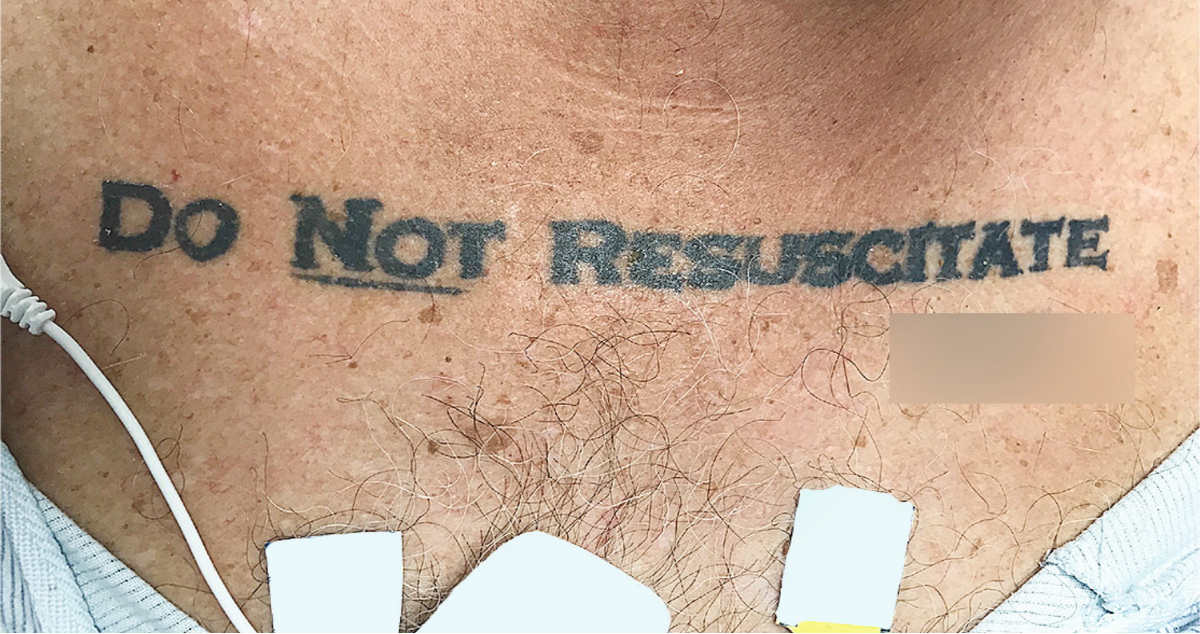
If you get a ‘do not resuscitate’ tattoo, will doctors pay attention?
Not necessarily, but ask an ethics committee
Doctors at a Florida hospital’s emergency department were startled to discover the words “do not resuscitate”, together with a signature, tattooed to an unconscious man’s chest. Should they respect the request or not?
The 70-year-old man had no identification and no next-of-kin could be found. His blood alcohol was high. His health was very bad, with a history of chronic obstructive pulmonary disease, diabetes, and an irregular heart rate.
The doctors decided to keep him alive, invoking the principle of not choosing an irreversible path when faced with uncertainty. In a case report in the New England Journal of Medicine, they say that “He was placed on empirical antibiotics, received intravenous fluid resuscitation and vasopressors, and was treated with bilevel positive airway pressure.”
However, the hospital’s ethics consultants advised the medical team to honour the patient’s request. They contended that “it was most reasonable to infer that the tattoo expressed an authentic preference, that what might be seen as caution could also be seen as standing on ceremony, and that the law is sometimes not nimble enough to support patient-centered care and respect for patients’ best interests.”
The patient died without recovering consciousness.
The issue of DNR tattoos has not received an extraordinary amount of attention in the scholarly literature. There are counter-examples. For instance, in 2012, California doctors reported in the Journal of General Internal Medicine that a 59-year-old man was admitted to hospital for a below-the-knee amputation due to chronic ulcers. He wanted to be resuscitated in the event of heart or lung failure.
Noting that he had a DNR tattoo, hospital staff queried the conflicting signals. “He explained that he had lost a bet playing poker with fellow ancillary hospital staffers while inebriated in his younger years; the loser had to tattoo ‘D.N.R.’ across his chest.” Understandably, the doctors suggested that he have the tattoo removed to avoid confusion in the future. “He stated he did not think anyone would take his tattoo seriously and declined tattoo removal.”
So the question of whether you should get a DNR tattoo remains open. Perhaps you could write, “Do not resuscitate (and I got this tattoo when I was sober)”.
Creative commons
https://www.bioedge.org/images/2008images/FB_do_not_resuscitate_2.jpg
do not resuscitate
tattoos
- How long can you put off seeing the doctor because of lockdowns? - December 3, 2021
- House of Lords debates assisted suicide—again - October 28, 2021
- Spanish government tries to restrict conscientious objection - October 28, 2021
